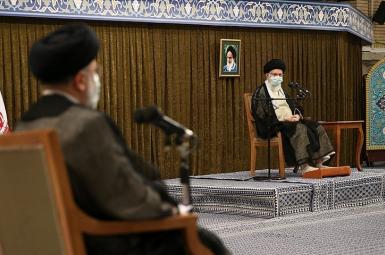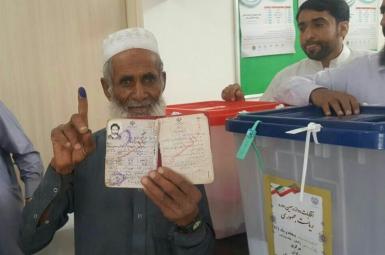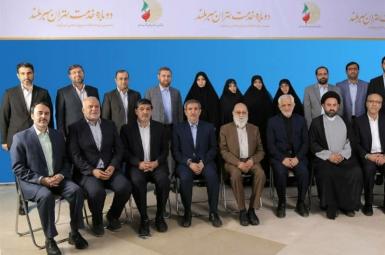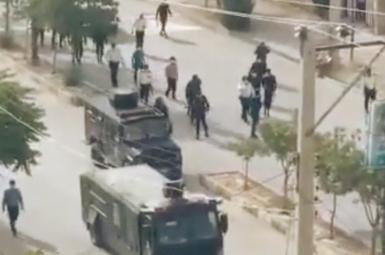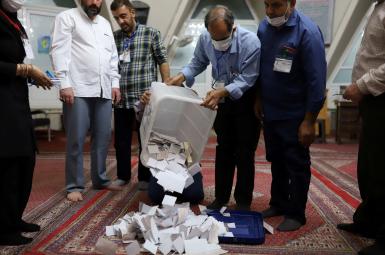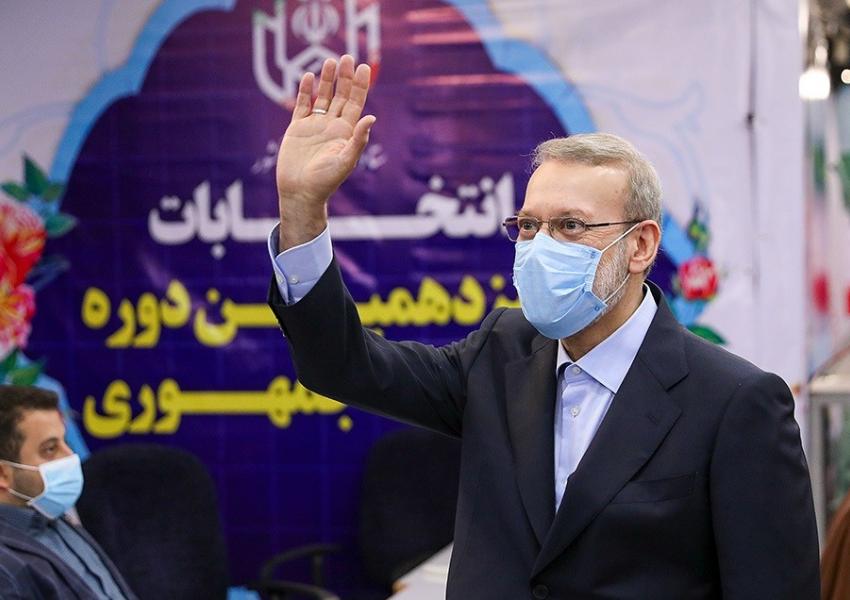
Daughter’s Foreign Ties Used To Exclude Larijani From Iran Poll
While Ali Larijani has said he will not appeal against the decision of the watchdog Guardian Council to omit him from the list of seven candidates for the June 18 presidential election, the conservative politician has said he has not been given any reasons for being ruled out.
In an Instagram post Tuesday, hardline lawmaker Hamid Rasaei claimed that the council had disqualified Larijani for breaching a Supreme National Security Council (SNSC) ban on officials allowing immediate family members to travel to or reside in "hostile countries such as Britain" even as students. Rasaei insisted "neither travelling between Tehran and Qom [where leading clerics are based], nor [lobbying] channels in Tehran can solve his [Larijani’s] problem."
Hossein Jafarzadeh, who is close to Sadegh Amoli-Larijani, Ali Larijani’s brother and a member of the Guardian Council said Wednesday the council had been told that Larijani's daughter Fatemeh Ardeshir-Larijani was a British citizen, thereby violating the SNSC ruling.
According to Jafarzadeh, Amoli-Larijani, who was in the Guardian Council as it vetted candidates, had said he would accept the allegation and his brother’s disqualification if the intelligence ministry confirmed it. Jafarzadeh said a phone call to intelligence ministry authorities then revealed the claim as false. The council probably had made up its mind and excluded Larijani anyway. Jafarzadeh said Larijani's daughter and son-in-law had gone to UK in 2004 to study and returned home two years later.
But another relative of Ali Larijani, brother-in-law Mohammad Motahari, in an Instagram story on Wednesday said Fatemeh was currently a medical research fellow in the United States on a student visa. Motahari also said a photo widely circulated on social media of a woman, claimed to be Ardeshir-Larijani, shaking hands with a man at an academic event in the US, was forged and part of a smear campaign against Ali Larijani. Hardliners on social media had circulated the photo to prove that Larijani's daughter was behaving improperly.
Some believe that Larijani was omitted to guarantee a trouble-free win for Chief Justice Ebrahim Raeesi (Raisi), while others in Iran are shocked. In a speech to lawmakers via video Thursday, Supreme Leader Ali Khamenei defended the Guardian Council’s decisions despite many appeals, including a letter from President Hassan Rouhani, to intervene and encourage a more competitive election and higher turnout.
Ali Larijani, 64 – and at least two of his four brothers Sadegh Amoli-Larijani, Mohammad-Javad, Bagher and Fazel – have served in the highest echelons of Iran's political system. As well as sitting on the Guardian Council, Amoli-Larijani chairs the Expediency Council and is a former chief justice, appointed to all these positions by Khamenei.
Ali Larijani was minister of Islamic guidance under President Akbar Hashemi Rafsanjani 1992-93, head of the state-controlled broadcaster (IRIB) from 1993 to 2003, and secretary of the Supreme National Security Council from 2005 to 2007. He has served three terms as a member of parliament and was parliamentary speaker from 2016 to 2020. In June 2020, he was appointed by Khamenei as a member of the 45-strong Expediency Council, which arbitrates in disputes between state bodies, and has led Iranian negotiators in talks with China over the bilateral strategic agreement.
Born in Najaf, Iraq, where his father Mirza Hashem Amoli was a seminary student, Larijani hails from an influential clerical family from northern Iran. He is related by blood and marriage to a host of other influential politicians and several other clerical families. Larijani’s wife Farida, too, hails from an influential clerical family, the Motaharis.

